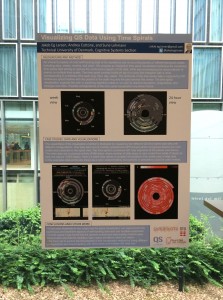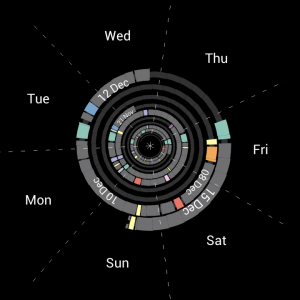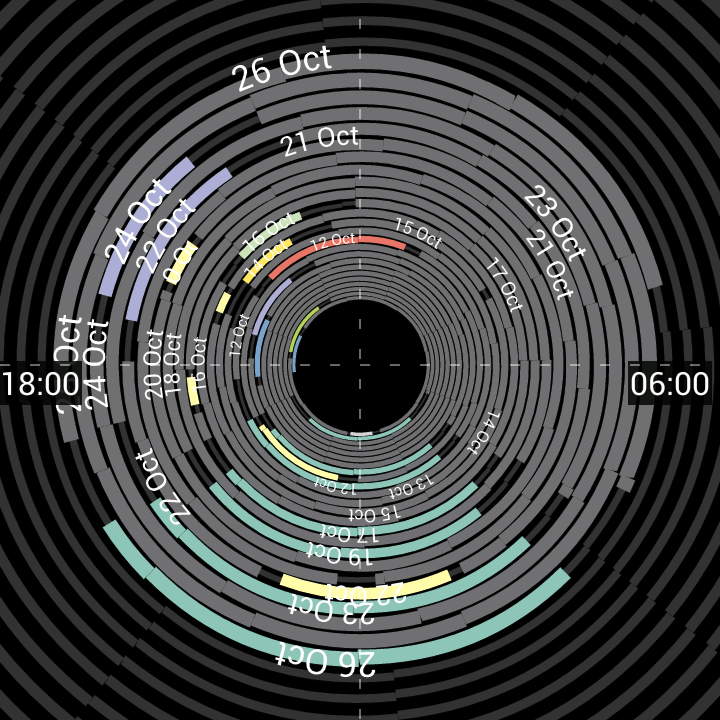Today my PhD student Simon Kamronn successfully defended his PhD thesis ”Monitoring and modelling of behavioral changes using smartphone and wearable sensing”. Congratulations, Simon!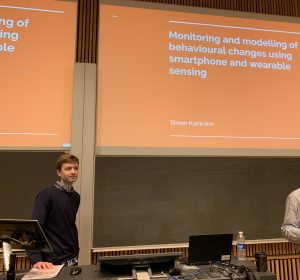
Tag Archives: quantified self
Quantified Self 2018 Conference
I participated in the QS2018 conference Sept 22-23 in Portland – two very intense days as (again!) I had committed to do too many different talks and sessions during the conference.
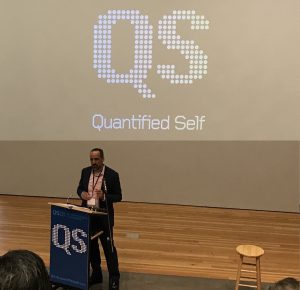
This included a breakout session on subjective experience tracking and a how-to session on building self-tracking instrumentation. In addition I did a personal show and tell talk and was invited to the panel in the closing plenary session.
In particular I enjoyed the opening of the QS18 conference by Allen Neuringer, professor of psychology saying “I have waited 50 years to be here”.
Quantified Self 2017 Conference
I participated in the QS2017 conference June 17-18 in Amsterdam – two very intense days as I had committed to do four different talks/breakouts during the conference.
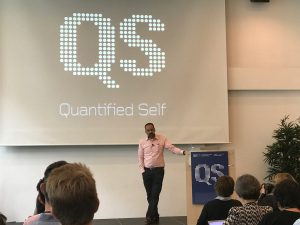
Together with Quantified Self Institute we did a breakout on QS research. Thomas Blomseth Christiansen and I organized a workshop/breakout session on Tracking Subjective Experience. I organized another breakout session about food tracking, which included a group of people with type 1 diabetes. And finally I did a show and tell talk about longitudinal tracking of sleep and resting heart rate.
SAA 2017 Conference
Had the opportunity to participate in SAA 2017 – the 5th biennial conference of the society for ambulatory assessment and present our work on Instrumenting ecological momentary assessment with a wearable smartbutton as part of a session on Methods and Protocols.
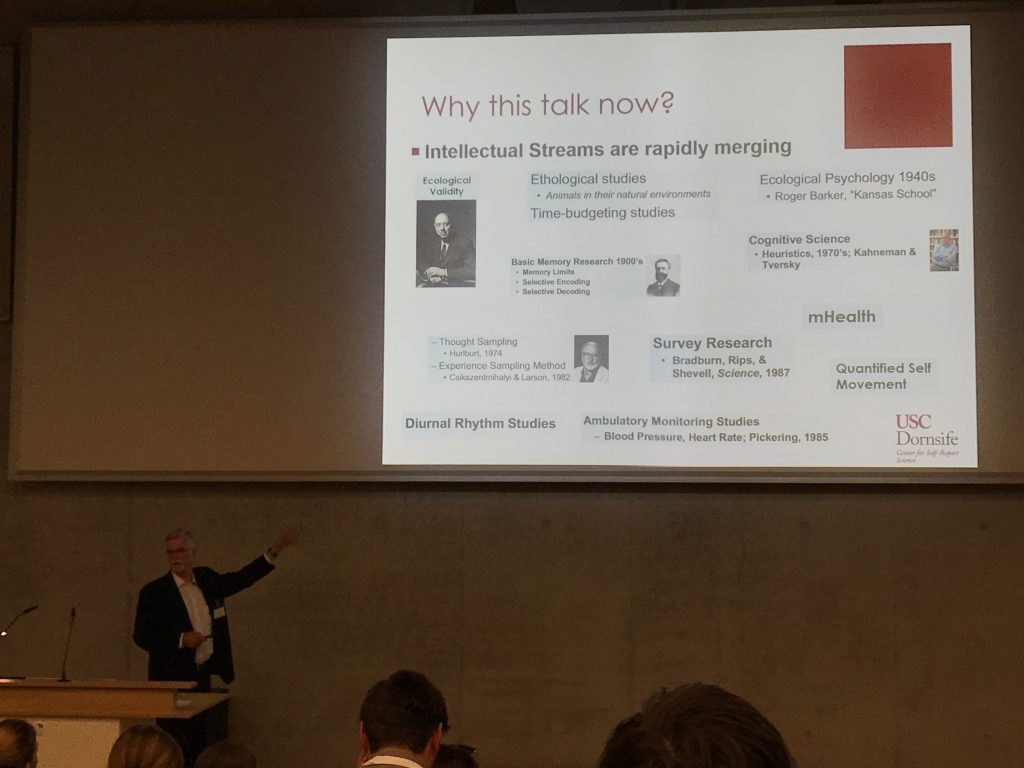
Moreover I had the opportunity to attend the keynote by Arthur Stone on “Challenges remaining for the field of real-time data capture”, including his shout out to the “Quantified Self Movement”, as he phrased it. During the Q&A I asked him to elaborate on the role of QS from his perspective, to which he responded: I think it’s really interesting that people are becoming so interested in monitoring themselves and get feedback about themselves. To me it seems like again maybe we should think about what they are doing and what they are saying and talk to them. And perhaps talk about the hypothesis generation, because I don’t see them doing the kind of stricter scientific research that we need to do in order to confirm the associations. But I think, I mean it’s great that people are doing this and are interested in this. It’s a little worrisome that the big corporations are getting into this – I mean maybe it’s worrisome, maybe it’s great. I’m not sure. Something is happening now and I don’t know quite how this is all going to turn out.
Keynote at Quantified Self Institute
I was invited to give a keynote at the Quantified Self Institute at Hanze University of Applied Science. My talk was entitled (Repurposing) self-tracking tools to obtain insights, where I discussed some of the practices observed among the experienced self-trackers in the Quantified Self Community over the years.
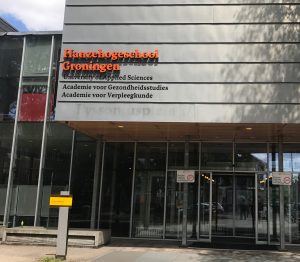
Pervasive Health 2017
I participated in the Pervasive Health 2017 conference (11th EAI International Conference on Pervasive Computing Technologies for Healthcare) and the workshop on Leveraging Patient-Generated Data for Collaborative Decision Making in Healthcare. Here I presented our work on Fostering Bilateral Patient-Clinician Engagement in Active Self-Tracking of Subjective Experience. 
Poster presentation at CHI2017
My PhD student Benjamin Johansen presented his work on “Personalized Hearing Aids based on behavioral patterns” at the CHI2017 conference in Denver. There is a poster and a short paper.
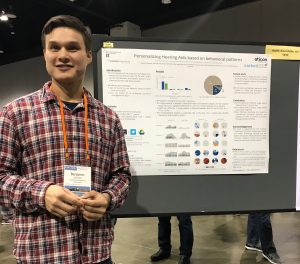
QS Copenhagen Meetup #15
We had the QS Copenhagen Meetup #15 with talks on continuous glucose tracking, tracking of running to achieve negative split, sleep and resting heart rate tracking, and a discussion about designing an N=1 experiment.
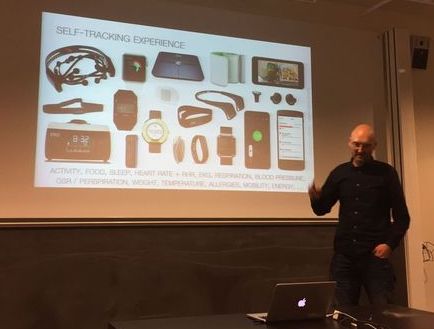
Per Bækgaard defended his PhD thesis
Today my PhD student Per Bækgaard successfully defended his PhD thesis ”Enhancing User Experience in Next Generation Mobile Devices Using Eye Tracking as a Biometric Sensor”. Congratulations, Per!
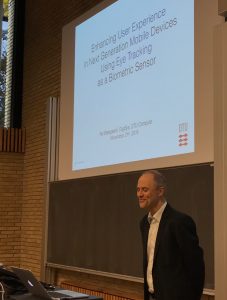
Andrea Cuttone defended his PhD thesis
Today my PhD student Andrea Cuttone successfully defended his PhD thesis “Data Mining and Visualization of Large Human Behavior Data Sets”. Congratulations, Andrea!
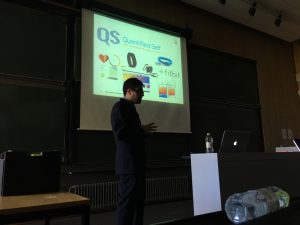
Quantified Self Workshop @ UbiComp15
I co-organized a workshop at UbiComp’15 on Quantified Self titled: New Frontiers of Quantified Self: Finding new ways for engaging users in collecting and using personal data. The proceedings from the workshop is available at the ACM Digital Library.

Personal Informatics at UbiComp2014
At the 2014 ACM International Joint Conference on Pervasive and Ubiquitous Computing (UbiComp 2014) we had the 5th international workshop on Personal Informatics.
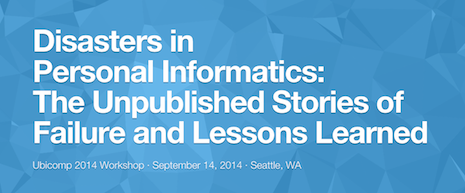 This year the workshop was framed as the “Disasters in Personal Informatics: The Unpublished Stories of Failure and Lessons Learned”. The idea was to stimulate a discussion on the challenges involved in conducting research in personal informatics. Nine interesting papers were discussed in three themes as part of the workshop program: Personal Informatics in Life, Data Collection and Quality, and Engagement in Longitudinal Studies.
This year the workshop was framed as the “Disasters in Personal Informatics: The Unpublished Stories of Failure and Lessons Learned”. The idea was to stimulate a discussion on the challenges involved in conducting research in personal informatics. Nine interesting papers were discussed in three themes as part of the workshop program: Personal Informatics in Life, Data Collection and Quality, and Engagement in Longitudinal Studies.
My PhD student Andrea Cuttone and I presented our work: “The Long Tail Issue in Large Scale Deployment of Personal Informatics” discussing issues in carrying out Personal Informatics research as part of our large-scale SensibleDTU study.
ESOF 2014 – Science in the City
This week we are showcasing our research in Quantified Self and Network Science at the EuroScience Open Forum 2014 (ESOF) Science in the City festival. Our tagline is: Which factors motivate you to take more steps?
With smartphones and new wearable devices it is possible to measure many different aspects of our lives, including exercising, sleep and mood. But the question is if this technology can change our habits?
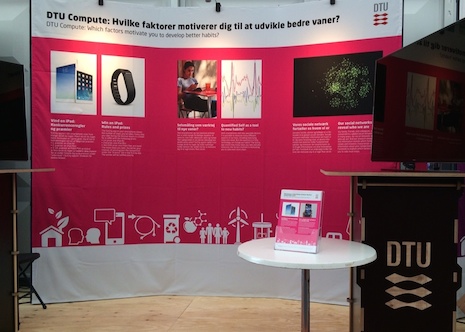
Our team from DTU Compute uses Science in the City as the foundation for a scientific study – and we use the official SciCity app to do this. We have included a step counter feature in the app and use the app to study the factors that motivate to take more steps. Our study is based on the two exciting scientific fields: Quantified Self and Network Science.
Quantified Self addressing how self-monitoring (for instance apps on smartphones or wearable gadgets) influence our self-perception and Network Science studying the mathematics that describes structure and dynamics in our social networks. Via family, friends, and colleagues, we’re connected to a global social network. In many ways, our social networks show who we are. And our research shows that this information reveals which fundamental values and interests characterize us. We use information about the connections on, e.g. Facebook to explore which factors motivate the user to take more steps.
TV2 Go’aften Danmark on Quantified Self
I appeared on the TV2 “Go’ aften Danmark” show tonight (May 12) to discuss the phenomenon quantified self (in Danish: selvmåling) and also the potential for our future health care system. The hosts were really good sports, as they had themselves been self-tracking steps, weight, body fat, activity, and mood for about a week.
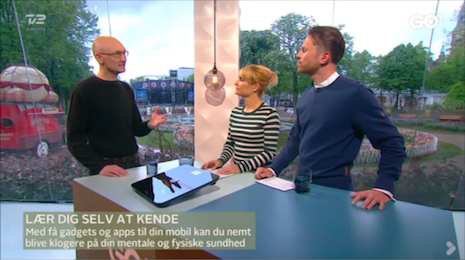 The show is available on the TV2 Play website (subscription required) starting out with a general discussion of quantified self and self-tracking and in the end of the show we discuss the future potential of self-tracking.
The show is available on the TV2 Play website (subscription required) starting out with a general discussion of quantified self and self-tracking and in the end of the show we discuss the future potential of self-tracking.
QS Europe Conference 2014
This weekend (May 9-11) I attended the Quantified Self Europe Conference 2014 in Amsterdam. Yet again a very packed conference program with lot’s of interesting presentations, show&tell, breakout sessions, and as usual 10 different things going on at the same time.
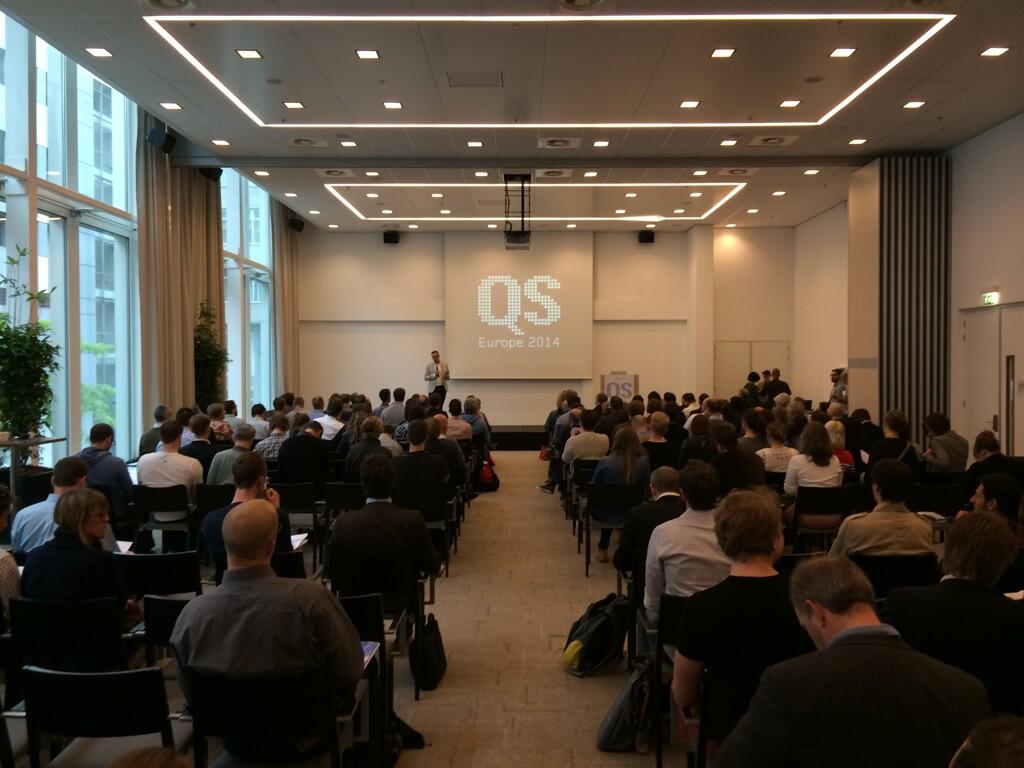
I presented our poster on Visualizing QS Data Using Time Spirals (PDF), which got a lot of attention from the conference participants. The poster was co-authored with my PhD student Andrea Cuttone, and collegue Associate Professor Sune Lehmann.
In addition I led a breakout session on “Strategies for Managing Personal Data”, which led into an interesting discussion of strategies, tools, and the common struggle experienced by multiple participants that personal data management is still a largely complex process.
World of Health IT
I got invited to give a talk on my research in quantified self as part of the World of Health IT Conference at the mHealth Symposium.
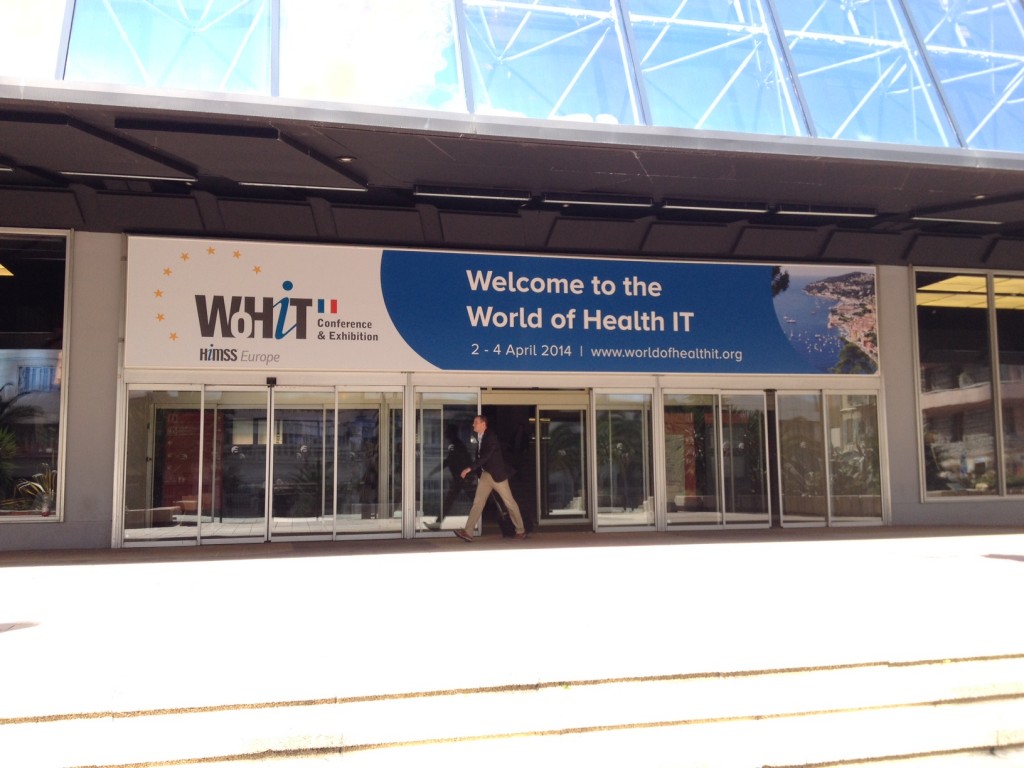 Interestingly the conversation recently have moved more towards discussing the potential of self-tracking in healthcare. And sure enough the conversation during the Q&A session was primarily focused on the potential and the consequences for the healthcare system (and patient) in the future. Some addressed this as a question of power and who has the upper hand (doctors and the system losing power), but I believe it’s not productive for the conversation to see it that way. Of course the stakeholders will eventually need to change their roles, but improved tools will be beneficial for all stakeholders. The conversation continues…
Interestingly the conversation recently have moved more towards discussing the potential of self-tracking in healthcare. And sure enough the conversation during the Q&A session was primarily focused on the potential and the consequences for the healthcare system (and patient) in the future. Some addressed this as a question of power and who has the upper hand (doctors and the system losing power), but I believe it’s not productive for the conversation to see it that way. Of course the stakeholders will eventually need to change their roles, but improved tools will be beneficial for all stakeholders. The conversation continues…
Quantified Self Global Conference 2013 in San Francisco
This week I’m attending the Quantified Self Global Conference 2013 in San Francisco.

Quantified Self, Personal Informatics, and Life Logging has gained increased attention among scientists and researchers. So at the conference I will be leading a breakout session on QS Research, where we will discuss challenges, opportunities, and future directions in this research domain.
TEDx Talk: Human Data for Life
My TEDx talk entitled Human Data for Life from the recent TEDxCopenhagenSalon event is available.
Over the last couple of years self-tracking has gained increased interest with the availability of smartphones and low-cost wearable sensors. The increasing quantities of data that we can capture about human behavior and interactions are key to future improvements in health and well-being.
Quantified Self Conference 2013 in Amsterdam
As part of my participation in the fourth Quantified Self Conference I chaired a breakout session on QS Research where I motivated the discussion by presenting some of our ongoing research, including the Smartphone Brain Scanner and the Sensible DTU project. There is a growing interest and increasing number of researchers and scholars participate in the QS conferences, which was apparent from our breakout room being completely full.
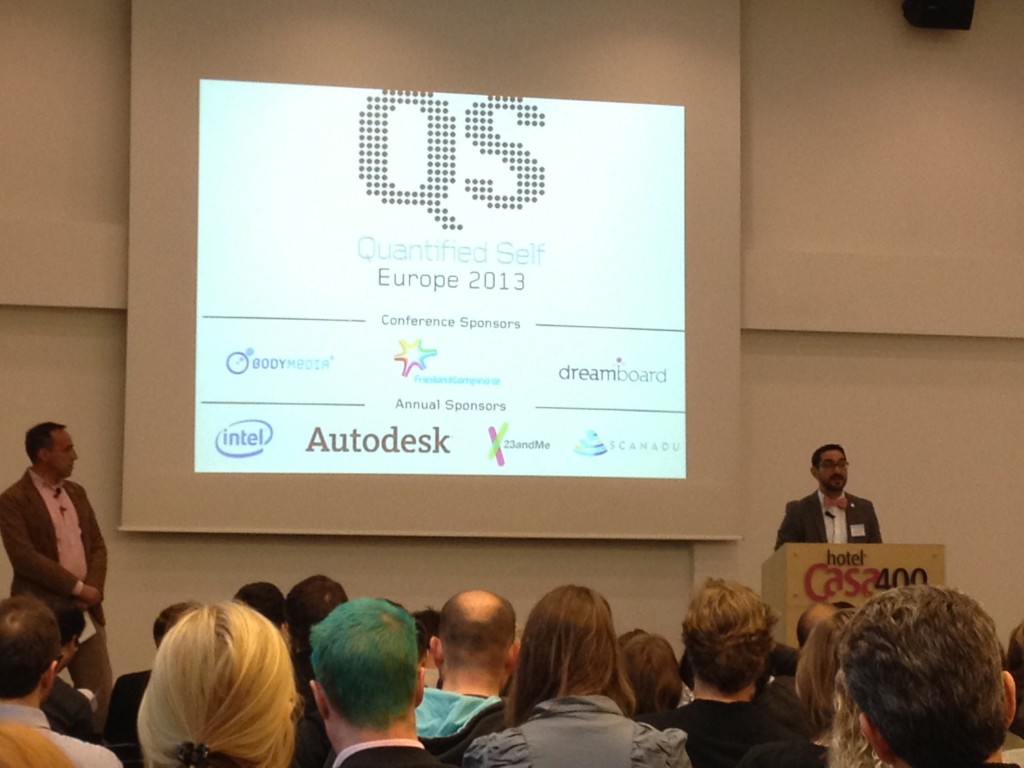
QS Spiral: Visualizing Periodic Quantified Self Data
As part of the Personal Informatics Workshop at CHI2013 we presented our paper QS Spiral: Visualizing Periodic Quantified Self Data. The paper is co-authored with Andrea Cuttone and Sune Lehmann.
In the paper we propose an interactive visualization technique QS Spiral that aims to capture the periodic properties of quantified self data and let the user explore those recurring patterns. The approach is based on time-series data visualized as a spiral structure. The interactivity includes the possibility of varying the time span and the time frame shown, allowing for different levels of detail and the discoverability of repetitive patterns in the data on multiple scales.

